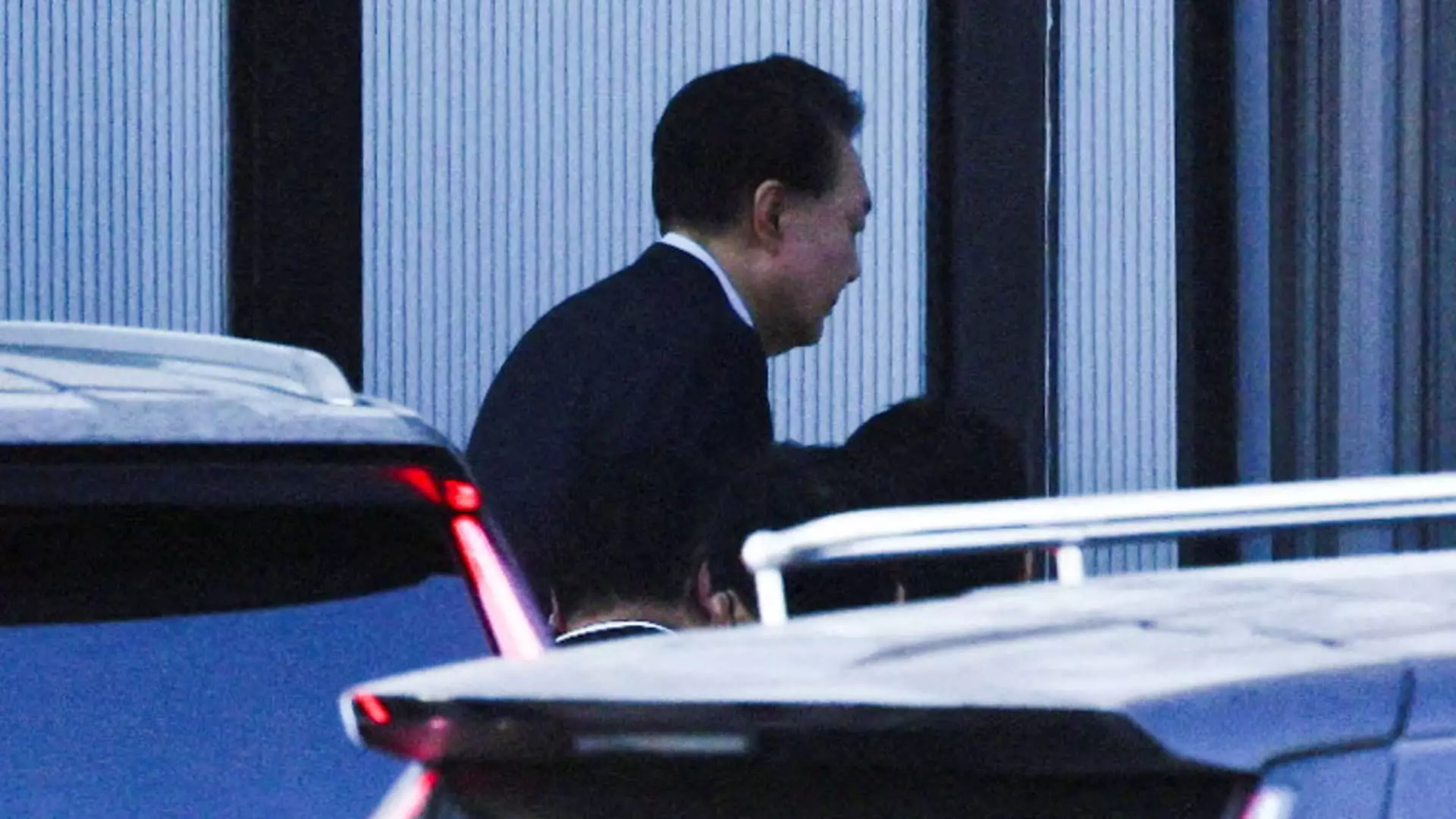The recent events surrounding South Korea’s embroiled political landscape have reached a dramatic climax with the detention of President Yoon Suk Yeol. His arrest marks a significant moment in the nation’s history, as he stands as the first sitting president to face criminal charges, specifically for allegations of insurrection. This unprecedented situation ushers in serious implications for the country’s governance and the public’s perception of power—and raises critical questions about the boundaries of political authority.
The core of the investigation involves Yoon’s controversial declaration of martial law on December 3, a move that has triggered scrutiny and debate surrounding its justification and legality. The authorities, particularly the Corruption Investigation Office for High-ranking Officials, are pressing charges that, if upheld, could weaken the already delicate trust in governmental institutions. The request to extend his detention reveals a strategy to scrutinize the legitimacy of the president’s extraordinary measures during a time of crisis.
As tensions intensify, Yoon has maintained a reticent approach, refusing to cooperate fully with the investigators. His decision to retain silence might be a calculated risk; however, it also complicates the legal framework surrounding his defense. The implications of this non-cooperation are far-reaching, possibly undermining his claims of innocence while strengthening the prosecution’s case.
The court hearing, which extended nearly five hours, served as a platform for the drama that unfolded outside the courtroom. The presence of Yoon’s supporters, rallying behind barricades to chant for his release, highlights the deep-seated divide among the populace regarding the ongoing investigation. With significant media coverage portraying these events in real-time, public interest is at an all-time high, raising questions about the intersection between law, justice, and public sentiment in democratic processes.
Yoon’s lawyer expressed confidence following the hearing, emphasizing that his client provided a thorough explanation regarding the context of the martial law. This portrayal seeks to frame Yoon not merely as a politician under duress but as an individual fostering a narrative of patriotic duty during an emergency. The stark contrast between courtroom discussions and the atmosphere outside the court — charged with fervent chants of support for Yoon — reflects the tensions brewing in South Korea’s political environment.
Yoon Suk Yeol’s situation epitomizes the precarious nature of political leadership amid allegations of encroaching authoritarianism. The charge of insurrection is particularly poignant, as it touches upon crucial themes of national stability and governance. The outcome of this case may influence how future administrations operate, especially regarding executive power and its limits.
As the nation waits for the court’s decision, implications rippling through South Korea’s political fabric are palpable. Regardless of the ruling, the incident has irrevocably altered the public’s perception of political authority, leading citizens to reflect on the accountability of their leaders. This shift presents an opportunity for renewed dialogues on governance, law, and the fundamental principles that underpin a functioning democracy.
Yoon’s predicament serves as both a legal conundrum and a catalyst for broader societal introspection on the nature of authority in South Korea. The coming days will determine not only the fate of one president but may also reframe the narrative surrounding political power and accountability in the years to come.

